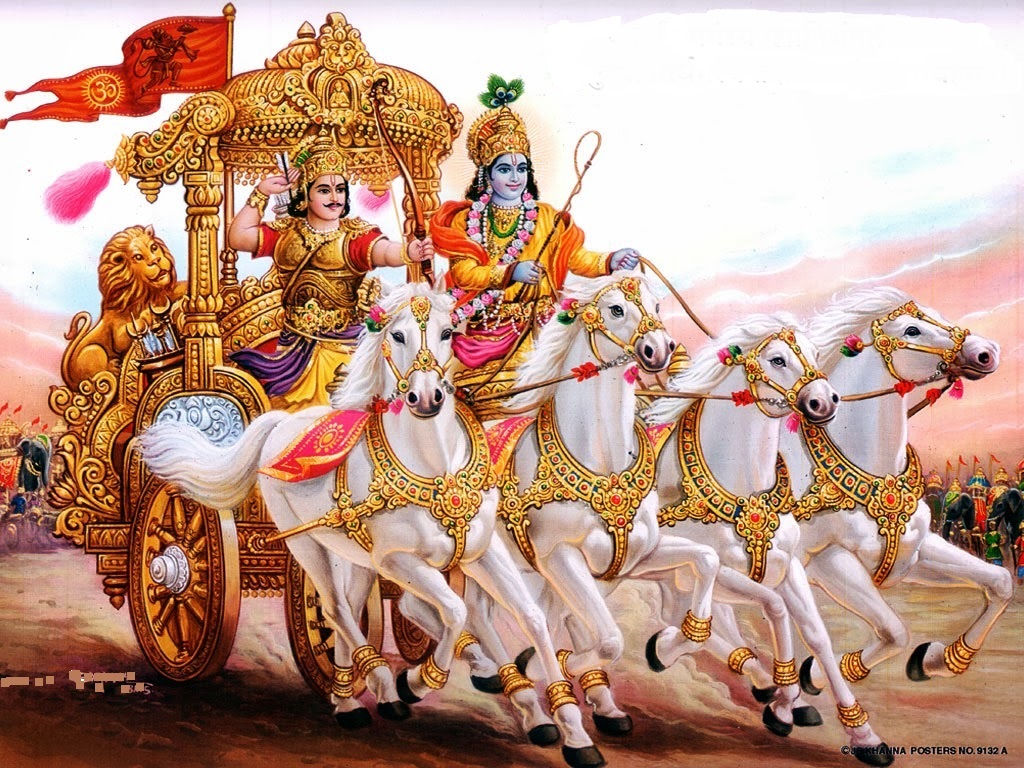The Relevance of the Bhagavadgita to Humanity 7-5: Swami Krishnananda.
Tuesday 03, Sep, 2024, 06:40.
The Relevance of the Bhagavadgita to Humanity :
Chapter 7: Can War Ever be Justified? - 5.
The First Six Chapters of the Bhagavadgita:
Swami Krishnananda
(Spoken on Bhagavadgita Jayanti
========================================================================================
There is a little story in the Chhandogya Upanishad. There was a poor, learned Brahman, almost starving to the point of dying. He was going to attend a sacrifice, or a yajna, that was being performed by the king or the ruler of that country, expecting to receive some presents in that great performance. Utter poverty is the only word that can explain his condition. On the way he met an elephant driver, a person who was considered a low-caste man, from whose hands nothing can be accepted by a high-caste Brahmin. That elephant driver was eating some beans, and he had eaten half. Firstly, one cannot eat from that man's hand. Secondly, half-eaten stuff is the worst thing. It cannot even be touched.
The Brahmin said, “Will you give me a little of these beans? I am dying of hunger.”
“Oh great Brahmin, I am an elephant driver. How would I give it to you?”
“I do not want to hear anything. Please give. I am dying of hunger.”
The elephant driver gave the beans to the Brahmin, who ate them.
Afterwards, the elephant driver said, “Take some water also, to drink.”
“No, you are a low-caste man. I cannot take the water.”
The elephant driver said, “How was it that I was not a low-caste man when I give you the beans, but now suddenly I have become that when I offered you water?”
The Brahmin replied, “I would have died had I not eaten the beans, but I need not take water from you because I can get it anywhere else. Where it was absolutely essential, even a transgression of an accepted principle is permitted because it was a question of dying, and life is sacred. Nothing can be more valuable than life, nothing more sacred. But why should I take water from you? There is plenty of water anywhere. So I should not take advantage of this laxity of principle always, where it is not necessary to take advantage of that; but where it is unavoidable, I can take advantage.”
Don't you believe that a little dose of liquor, wine or brandy may be administered to a person who is unconscious? A man has fallen from a tree and is unconscious. Just to revive his senses, they give a little brandy, wine, whiskey, whatever it is. But would you give it always to a person? So a most objectionable thing sometimes becomes a very necessary thing, and its objectionable character is abolished because of the absolute necessity for it. These are certain quandaries when trying to understand what one should do when there is aggression on oneself.
I had a little talk with Swami Chidanandaji Maharaj on the anniversary of the birth of Mahatma Gandhi. We had a little celebration here. I had a peculiar brainwave. It was between us only. That question which I raised before him is still unanswered. He is trying to answer it, and I am also trying to answer it. Anyhow, we have tried to reconcile ourselves somehow or other, and come to a conclusion in some way. I wrote on a small piece of paper and handed it over to him, because it was the occasion of the birth of a great man who was an uncompromising protagonist of ahimsa: Under any circumstance one cannot kill. I asked in this little note I passed to Swami Chidananda, “Do you believe that ahimsa is uncompromising?”
======================================================================================
Continued









Comments